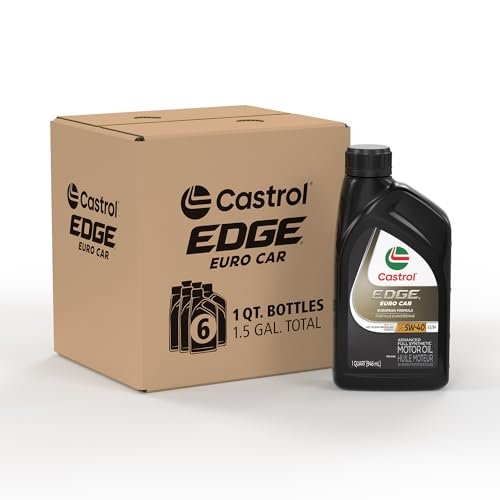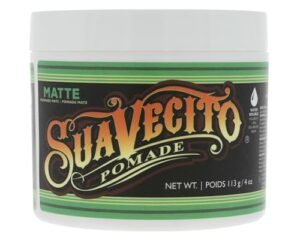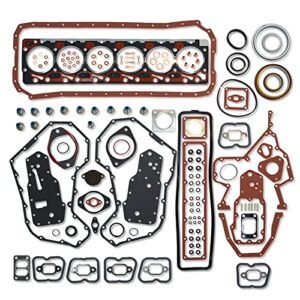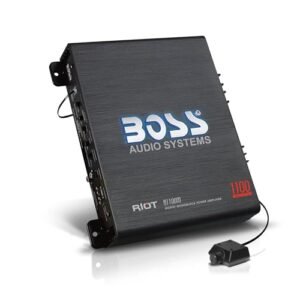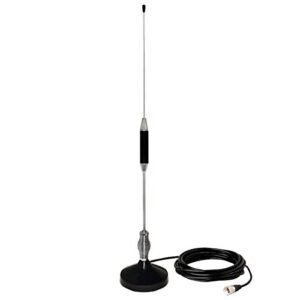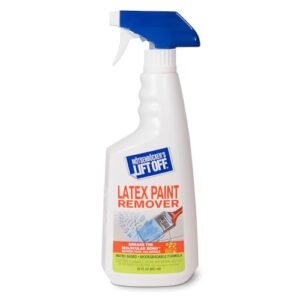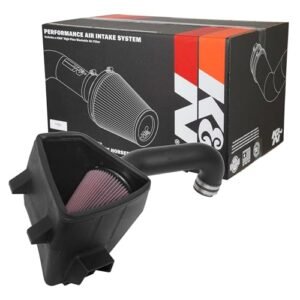Choosing the right motor oil can feel overwhelming. This guide compares 5W-40 and 5W-30 oils, highlighting ten popular options to help you make an informed decision for your vehicle. We’ll explore their differences, benefits, and drawbacks, ultimately guiding you towards the best choice for your needs and budget. Let’s dive in!
| IMAGE | PRODUCT NAME | AMAZON LINK |
|---|---|---|

|
Castrol Edge Euro 5W-40 A3/B4 Advanced Full Synthetic Motor… |
View on Amazon |

|
Shell Rotella T6 Full Synthetic 5W-40 Motor Oil, 1 Gallon… |
View on Amazon |

|
Pennzoil Platinum Euro Full Synthetic 5W-40 Motor Oil, 1… |
View on Amazon |

|
Mobil 1 Advanced Full Synthetic Motor Oil 5W-30, 5 Quart |
View on Amazon |

|
Valvoline European Vehicle Full Synthetic 5W-40 Motor Oil 5… |
View on Amazon |

|
Castrol EDGE 5W-30 Advanced Full Synthetic Motor Oil, 5… |
View on Amazon |

|
Valvoline High Mileage with MaxLife Technology SAE 5W-30… |
View on Amazon |

|
Castrol GTX High Mileage 5W-30 Synthetic Blend Motor Oil,… |
View on Amazon |

|
Liqui Moly 20230 Molygen New Generation 5W-40 Motor Oil,… |
View on Amazon |

|
Castrol EDGE High Mileage 5W-30 Advanced Full Synthetic… |
View on Amazon |
Understanding 5W-40 vs 5W-30
The numbers in the oil grade (e.g., 5W-30, 5W-40) represent the oil’s viscosity – its thickness. The “W” stands for winter, and the number before it indicates the oil’s low-temperature performance. A lower number means better flow in cold weather. The second number represents the oil’s viscosity at operating temperature. A higher number means thicker oil at high temperatures.
5W-30 is generally thinner than 5W-40. Thinner oils are better for fuel efficiency and easier cold-weather starting. However, thicker oils like 5W-40 offer better protection at high temperatures and under heavy loads. The best choice depends entirely on your vehicle’s manufacturer recommendations and driving conditions. Always consult your owner’s manual!
Product Reviews
1. Castrol Edge Euro 5W-40 A3/B4
Castrol Edge Euro 5W-40 is a high-performance synthetic oil designed for European vehicles. It boasts superior viscosity control and excellent engine cleanliness.
- 1.2X Better viscosity control*
- 2X Better engine cleanliness*
- Meets various European specifications (ACEA A3/B4, BMW, MB, Porsche, Renault, VW)
Pros:
– Excellent high-temperature protection
– Superior cleanliness
– Meets demanding European standards
Cons:
– Can be more expensive than other options
– May not be necessary for all vehicles
User Feedback Summary: Users consistently praise its performance in high-performance engines and demanding conditions.
2. Shell Rotella T6 Full Synthetic 5W-40
Shell Rotella T6 is a heavy-duty full synthetic oil designed for diesel engines but suitable for some gasoline engines as well. It offers excellent wear protection and longevity.
- Triple Protection Plus technology
- Improved wear performance
- Enhanced fuel economy (compared to 15W-40)
- Meets various API and OEM specifications (CK-4, CJ-4, etc.)
Pros:
– Exceptional durability and protection
– Suitable for high-mileage and demanding use
– Good fuel economy
Cons:
– Might be overkill for vehicles not requiring heavy-duty oil
– Pricey
User Feedback Summary: Highly rated by users, especially those with diesel trucks or vehicles used for towing or heavy loads.
3. Pennzoil Platinum Euro Full Synthetic 5W-40
Pennzoil Platinum Euro is another strong contender for European vehicles, offering excellent protection and performance in various demanding conditions.
- Formulated for modern light-duty diesel and high-performance gasoline engines.
- Helps extend engine life (guaranteed*)
- Meets various API and OEM specifications (API SP, ACEA A3/B3, A3/B4, etc.)
Pros:
– Good balance of protection and fuel efficiency
– Meets stringent OEM requirements
– Long-life protection
Cons:
– Price point is on the higher end.
User Feedback Summary: Users report positive experiences with engine cleanliness and performance, particularly in high-performance cars.
4. Mobil 1 Advanced Full Synthetic 5W-30
Mobil 1 Advanced Full Synthetic 5W-30 is a popular choice known for its balance of protection and fuel efficiency.
- Mobil 1’s Triple Action Formula
- Meets ILSAC GF-6 standards (LSPI protection)
- Helps remove sludge
- Excellent high and low-temperature protection
Pros:
– Widely available
– Good all-around performance
– Good fuel economy
Cons:
– Not as robust high-temperature protection as 5W-40 oils
User Feedback Summary: A reliable and popular choice for everyday driving; users consistently highlight its cleanliness and ease of use.
5. Valvoline European Vehicle Full Synthetic 5W-40
Valvoline European Vehicle 5W-40 is a great full synthetic option for European vehicles, providing broad protection against wear, heat, and deposits.
- Advanced protection for European gasoline and diesel vehicles.
- Meets or exceeds various API and OEM specifications (API SP, ACEA A3/B3, A3/B4, etc.)
- Exceptional high/low temperature protection
Pros:
– Solid protection for European cars
– Wide range of approvals
– Good value for a full synthetic
Cons:
– May not be as widely available as some other brands
User Feedback Summary: Valvoline consistently delivers good performance and is generally well-regarded by those who’ve used it.
6. Castrol EDGE 5W-30 Advanced Full Synthetic
Castrol EDGE 5W-30 focuses on superior high-stress performance and extended oil change intervals.
- 3X Stronger than the leading full synthetic*
- 10X Better high-stress performance**
- Extended oil change intervals (20,000 miles or 1 year)***
- Meets various API and OEM specifications (API SQ/SP/SN PLUS/SN, ILSAC GF-7, etc.)
Pros:
– Excellent high-stress protection
– Long drain intervals
– Wide range of approvals
Cons:
– Might not be ideal for all driving styles or conditions.
User Feedback Summary: Users praise its long drain intervals and strong performance under pressure.
7. Valvoline High Mileage with MaxLife Technology SAE 5W-30
Valvoline High Mileage 5W-30 is specifically designed for high-mileage engines. It includes seal conditioners to help reduce leaks and improve performance.
- MaxLife Technology for wear protection
- Seal conditioners to reduce oil leaks
- Added detergents for engine cleanliness
- Meets various API specifications (ILSAC GF-6A, API SP, SN Plus, etc.)
Pros:
– Specifically designed for high-mileage engines
– Helps reduce leaks
– Good cleaning properties
Cons:
– Not a full synthetic
User Feedback Summary: High praise for reducing leaks and extending the life of older engines.
8. Castrol GTX High Mileage 5W-30 Synthetic Blend
Castrol GTX High Mileage is a synthetic blend designed for high-mileage vehicles; it focuses on wear protection and improved fuel economy.
- Phosphorus Replacement Technology
- Superior dispersancy to fight sludge
- Seal conditioners to reduce leaks
- Improved fuel economy**
- Meets various API specifications (API SP/SN PLUS/SN/SM, ILSAC GF-6, etc.)
Pros:
– Affordable high mileage option
– Helps reduce leaks
– Decent protection
Cons:
– Not a full synthetic
– Performance may not match full synthetic oils
User Feedback Summary: A budget-friendly option for older engines; users appreciate its leak reduction capabilities.
9. Liqui Moly 20230 Molygen New Generation 5W-40
Liqui Moly Molygen 5W-40 is a high-performance oil focused on low viscosity and long drain intervals.
- Low viscosity with high shear stability
- Prevents deposit formation
- Fuel savings and extended engine life
- High-performance for year-round use
Pros:
– High-performance, low friction
– Good for extended drain intervals
– High quality ingredients
Cons:
– Availability might be limited in some regions
– Can be expensive
User Feedback Summary: Users who’ve used it report a positive impact on engine performance and longevity, but experiences may vary.
10. Castrol EDGE High Mileage 5W-30 Advanced Full Synthetic
Castrol EDGE High Mileage 5W-30 focuses on extending engine life and reducing leaks in high mileage engines.
- Phosphorus Replacement Technology
- Reduces leaks and oil burn-off
- Extended oil change intervals (15,000 miles or 1 year)*
- Meets various API and OEM specifications (API SP/SN PLUS/SN/SM, ILSAC GF-6, etc.)
Pros:
– Specifically formulated for high mileage engines.
– Good protection and extended drain intervals
– Wide range of approvals.
Cons:
– High price point
User Feedback Summary: Users generally find it effective in reducing leaks and improving overall engine health in high mileage vehicles.
Practical Buying Advice
Before purchasing oil, always check your owner’s manual. It will specify the recommended oil grade (e.g., 5W-30 or 5W-40) and other critical specifications. Don’t deviate from the manufacturer’s recommendations unless you have a compelling reason and understand the potential consequences.
Consider your driving conditions. If you frequently drive in extreme temperatures or under heavy loads (towing, off-roading), a thicker oil like 5W-40 might be preferable. For everyday driving in moderate climates, 5W-30 often suffices.
Think about your budget. Full synthetic oils are generally more expensive but offer superior protection and longevity. Synthetic blends offer a compromise between price and performance.
Final Verdict
There’s no single “best” oil. The ideal choice depends on your vehicle’s requirements and your driving style. This guide provides a range of high-quality options to suit various needs and budgets. Always prioritize the recommendations in your vehicle’s owner’s manual.
FAQ
Q: Can I use 5W-40 instead of 5W-30? A: Only if your owner’s manual explicitly allows it. Using the wrong viscosity can damage your engine.
Q: What’s the difference between full synthetic, synthetic blend, and conventional oil? A: Full synthetic is the highest-quality oil, offering superior protection and longevity. Synthetic blends are a cost-effective compromise, and conventional oil is the most basic type.
Q: How often should I change my oil? A: Refer to your owner’s manual. Typical intervals range from 3,000 to 10,000 miles or even longer, depending on the oil type and vehicle.
Q: What does API SP mean? A: It’s a certification from the American Petroleum Institute indicating the oil meets current performance standards.
Q: What are the benefits of using high mileage oil? A: High mileage oils often contain seal conditioners to help reduce leaks and additives to protect aging engines.
Q: Can I mix different brands of oil? A: It’s generally not recommended. Stick to the same brand and type of oil unless absolutely necessary. If you must mix, ensure they have compatible certifications (e.g., API).
Affiliate Disclosure: As an Amazon Associate, I earn from qualifying purchases made through links on this site.

